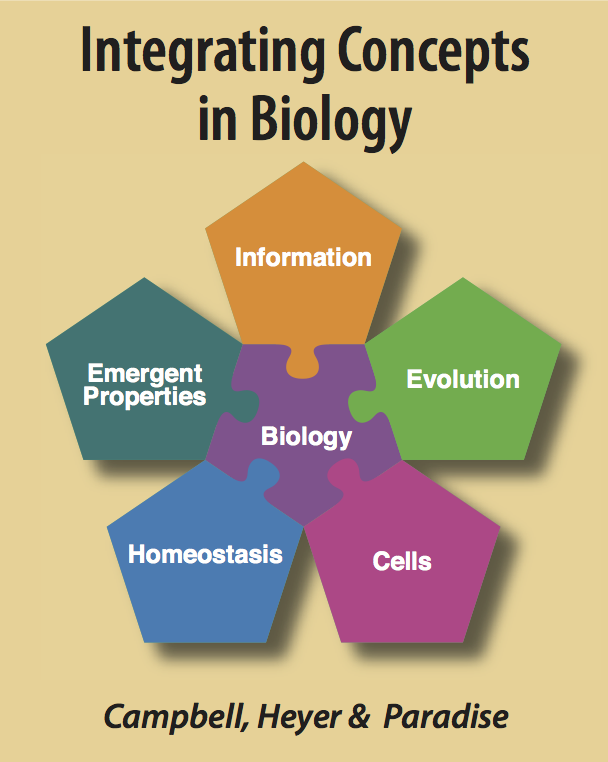The Biology Department strives to always be at the forefront of best pedagogical practices, and in fact, we have been recognized nationally for our efforts. That means that we are constantly assessing and monitoring our curriculum, in our individual courses and for the entire major curriculum. For the latter, I want to bring your attention to important changes to our departmental Learning Outcomes. Learning outcomes at the departmental level are statements that describe the knowledge or skills students should have acquired by the time they graduate. You are no doubt familiar with course Learning Outcomes. Below you can find our revised Mission Statement and Learning Outcomes.
The most significant changes include the last sentence in the Mission Statement and Learning Outcome #5, where we intentionally bring attention to the intersections of science and society and acknowledge that, while science can bring about much good in society, it can also cause harm. Those harms include science’s role in discrimination and oppression, the ongoing lack of diversity in STEM, the misuse of data and theory in policy, and more. The department is united in its efforts to integrate more of these issues into each of our courses, as appropriate, and to teach in a more inclusive manner for the success of all our students. Please take a moment to read our Mission Statement and Learning Outcomes, and let me know if you have any questions. The entire department wishes you a great spring semester!
BIOLOGY Mission Statement and Learning Outcomes
I. Mission Statement
The Davidson College Biology Department provides students with a strong foundation in biology, enabling them to think critically about biological topics, to develop the scientific skills necessary to understand the natural world and human interactions within it, and to communicate scientific information in oral and written formats. By offering courses that span the spectrum of biological disciplines, Davidson Biology prepares students for fulfilling careers in a diversity of fields. The Department’s curriculum prepares students to take a leadership role in society by furnishing them with tools to make informed decisions about scientific issues. These tools include understanding the intersections of science with social issues and reconciling the good that can come from scientific knowledge with the harm that has been, and can yet be, produced by scientists.
II. Student Learning Outcomes
LO #1: Students will apply the process of science by:
- generating answerable questions and testable hypotheses to address novel problems and/or observations about the world
- constructing studies that are rigorously designed to answer questions or test hypotheses
- collecting data using appropriate methods and protocols
- interpreting scientific results within the context of prior knowledge
LO #2: Students will demonstrate scientific literacy informed by their liberal arts education by:
- analyzing, critically evaluating, and integrating biological information with knowledge from multiple other disciplines to inform decisions and policies
- developing effective solutions to complex problems and challenges by drawing from diverse areas of knowledge
LO #3. Students will exercise quantitative skills by:
- generating and interpreting graphs, tables, and other data visualizations
- applying and interpreting statistical analyses to draw conclusions from data
- applying and interpreting mathematical models as approximations of reality and as sources of testable predictions
LO #4. Students will communicate science effectively through oral and written formats by:
- organizing information and presenting logical, coherent arguments
- producing effective scientific writing
- communicating effectively with diverse audiences and through multiple forms of media
LO #5. Students will understand and analyze the historical, ethical, legal, and social context and implications of scientific information by:
- interrogating the foundations of biology and scientific practice, including the role the sciences have played in racist, ableist, and gender- and sex-based discrimination and oppression
- critiquing the lack of diversity among scientists and the misuse of biological information that contributes to social inequities
- employing appropriate ethical standards when designing and reporting studies
- analyzing the social, policy, and personal implications of biological knowledge to inform personal and policy decisions
- evaluating policies, news items, and social structures using data and logic
LO #6. Students will demonstrate comprehension of the core themes and concepts that transcend levels of biological organization by recognizing, explaining, and/or citing examples of:
- information flow, exchange, and storage in biological systems
- processes and mechanisms of evolution leading to change in populations and species
- structure-function relationships in biological systems
- biological mechanisms that utilize and transform energy and matter
- complex biological systems producing emergent properties

